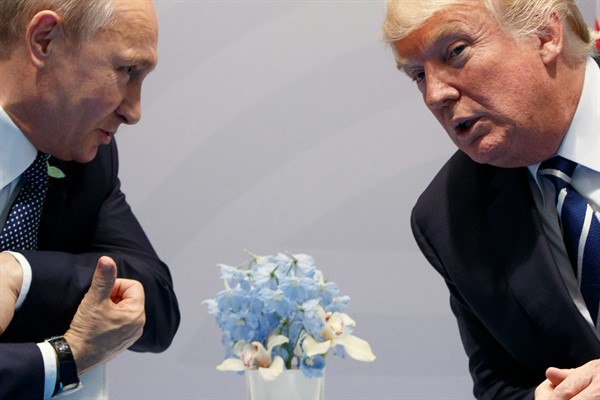With Russian troops now deep inside Ukraine, and with NATO and the United Nations Security Council caught up in a series of emergency sessions in order to respond to the conflict, it may seem a bit glib to fixate on the question of how the Russian invasion will shape domestic politics in the United States. Still, it is important to also acknowledge what this moment in history means for the future trajectory of the U.S., and, in turn, what shifting attitudes in Washington might mean for U.S.-Russia relations.
It must be acknowledged upfront: Thousands if not millions of Ukrainians could be killed or displaced if the current conflict with Russia escalates further. In a few months’ time, the map of Europe may look quite different to us, assuming Russian President Vladimir Putin succeeds in achieving his maximalist goal of decapitating Ukraine’s political leadership in Kyiv. Given the fierce Ukrainian resistance in the face of the initial Russian onslaught, as well as the scale of Russian firepower still in reserve and arrayed across Ukraine’s three border regions, the coming destruction will undoubtedly reverberate for a generation or more across the country, the continent and—quite likely—the world.
The very threat of Russia ramping up its military aggression in Ukraine is arguably already reshaping political views in the United States. A recent AP-NORC poll found that only four in 10 Americans approve of how U.S. President Joe Biden has handled foreign policy and the U.S.-Russia relationship. Mistrust of U.S. intelligence agencies is widespread, a bruising after-effect of the politicization of the intelligence used to justify the U.S. war in Iraq 20 years ago. Most of those polled seem to agree that the U.S. needs to be cautious about its involvement in Ukraine and avoid military escalation.

